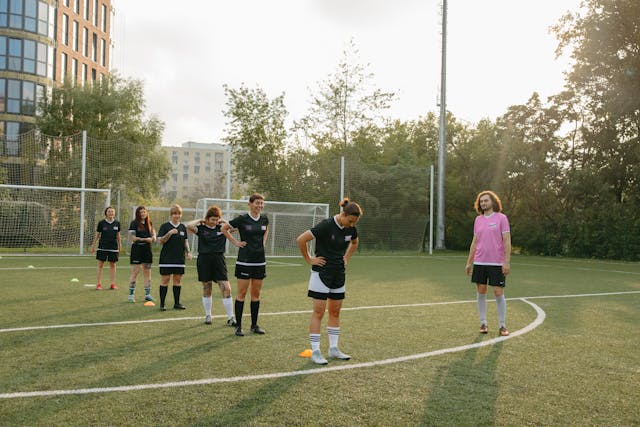Introduction
Volunteering, often perceived as a simple act of giving back, possesses a transformative power capable of reshaping communities in profound ways. It’s more than just donating time; it’s about fostering connections, bridging divides, and cultivating a sense of shared responsibility. Says Andrew Hillman, this article explores the multifaceted impact of volunteering, examining how it strengthens social fabric, empowers individuals, and ultimately contributes to a more vibrant and resilient society. We’ll delve into specific examples and analyze the ripple effects of this seemingly simple act of generosity.
Strengthening Social Cohesion
The act of volunteering inherently fosters a sense of community. Individuals from diverse backgrounds come together, united by a shared purpose. This interaction transcends differences in age, ethnicity, socioeconomic status, and beliefs. Working collaboratively on a project, be it cleaning up a park, mentoring youth, or supporting a local charity, breaks down barriers and fosters mutual understanding. This shared experience creates a strong sense of belonging, strengthening the social fabric and promoting inclusivity within the community.
Furthermore, volunteering provides a platform for individuals to connect with their neighbors and build meaningful relationships. These connections extend beyond the immediate volunteering experience, creating a network of support and mutual assistance that enhances community resilience. This strengthened social capital is invaluable, leading to a more cooperative and supportive environment for all residents.
Empowering Individuals and Building Skills
Volunteering is not just beneficial for the community; it offers significant personal rewards for the volunteers themselves. The experience provides opportunities for personal growth, skill development, and increased self-esteem. Whether it’s learning new technical skills while assisting a non-profit organization or developing leadership capabilities while coordinating a community event, volunteering offers invaluable learning experiences that can enhance career prospects and personal development.
Beyond tangible skills, volunteering cultivates crucial soft skills such as teamwork, communication, problem-solving, and empathy. These skills are highly valued in the workplace and in all aspects of life, making volunteering a valuable investment in one’s personal and professional future. The sense of accomplishment and purpose derived from making a tangible difference in the lives of others also contributes significantly to improved mental well-being and increased self-confidence.
Addressing Critical Community Needs
Communities face a myriad of challenges, ranging from poverty and homelessness to environmental degradation and lack of access to essential services. Volunteering plays a crucial role in addressing these critical needs. By providing support to local organizations and initiatives, volunteers contribute directly to mitigating these challenges and improving the overall well-being of the community.
From providing food and shelter to the homeless to assisting with environmental cleanup efforts, volunteers provide invaluable resources and manpower that often supplement or even replace limited public services. This direct engagement with community issues not only provides immediate relief but also fosters a greater understanding of the complexities of social problems, potentially leading to more effective and sustainable solutions in the long term.
Boosting Economic Vitality
While often overlooked, volunteering contributes significantly to the economic vitality of a community. The time and skills contributed by volunteers translate into substantial savings for non-profit organizations and government agencies, allowing them to allocate resources more effectively towards their core missions. This financial impact is particularly significant for smaller organizations that heavily rely on volunteer support.
Moreover, volunteering can indirectly stimulate the local economy. Community events and initiatives organized by volunteers attract participants, boosting local businesses and generating revenue. The improved social infrastructure resulting from volunteer efforts also creates a more attractive environment for businesses and residents, further stimulating economic growth and prosperity.
Fostering a Culture of Civic Engagement
Volunteering cultivates a culture of civic engagement and shared responsibility. By participating in community initiatives, individuals develop a stronger sense of ownership and responsibility towards their community’s well-being. This heightened civic consciousness contributes to a more participatory and democratic society.
Furthermore, volunteering serves as a powerful example for younger generations, inspiring them to become active and engaged citizens. By witnessing the positive impact of volunteer efforts firsthand, young people are more likely to develop a strong sense of social responsibility and become active participants in their communities throughout their lives. This intergenerational involvement strengthens the overall community fabric and ensures its continued vitality for future generations.
Conclusion
The power of volunteering extends far beyond the individual acts of kindness and generosity. It serves as a catalyst for positive change, reshaping communities by strengthening social cohesion, empowering individuals, addressing critical needs, boosting economic vitality, and fostering a culture of civic engagement. By embracing the spirit of volunteerism, we collectively contribute to the creation of more vibrant, resilient, and equitable communities for all. The time invested in volunteering is not merely a contribution; it’s an investment in the future, yielding immeasurable returns for both individuals and society as a whole.
